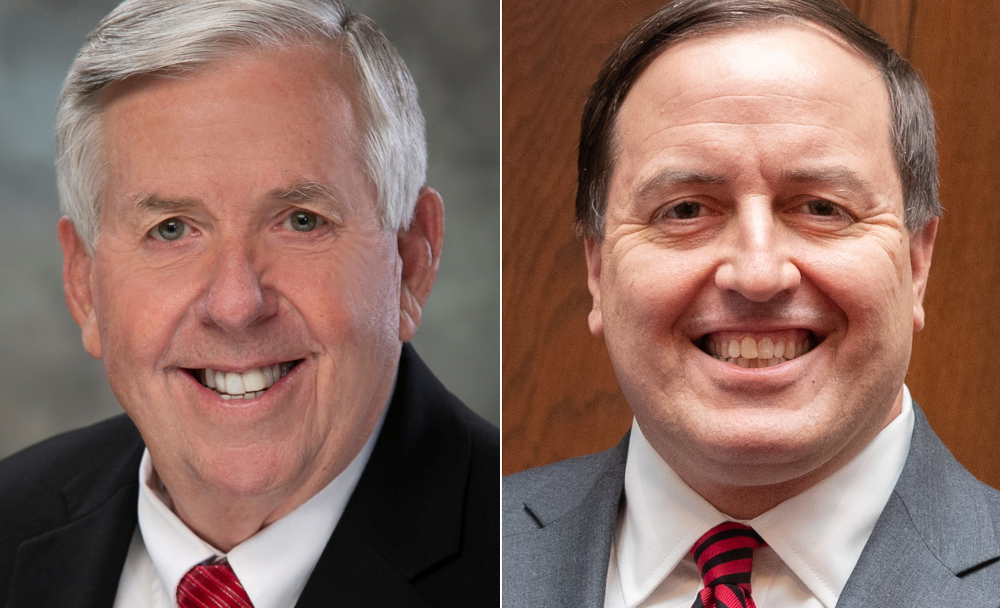Intoxicating hemp products have sparked an internecine war among Republicans in Missouri, with top state officials trading barbs in an emerging political battle over a ban on the synthetic compounds.
An executive order establishing the ban was issued earlier this month by Republican Gov. Mike Parson, who warned of health concerns and lack of research on the hemp-derived psychoactive substances and their wide accessibility to children as justification for the ban.
Planned to go into effect Sept. 1, the order was designed to remove all hemp-derived THC edibles and beverages from Missouri food and liquor stores, under threat of penalty.
However, Missouri Secretary of State Jay Ashcroft, also a Republican, this week rejected the rules detailing how the order would be enforced.
‘I am disgusted’
Parson charged that Ashcroft’s refusal to approve the executive order sprang from the governor’s support for rival Republican Mike Kehoe, Missouri’s lieutenant governor, who defeated Ashcroft in the recent gubernatorial primary. Parson’s term as governor ends this year.
“This is a personal matter for thousands of parents and grandparents across the state, and denying the rulemaking is your attempt at retribution for my endorsement of another candidate,” said Parson, suggesting rulemaking likely will be delayed for at least six months. “Safety of kids is not a political issue. I am disgusted that you are making it one.”
Responding to the governor’s accusation, Ashcroft’s office told The Missouri Independent that the rules were rejected because they didn’t meet criteria under state law.
The ban, which would have taken effect Sept. 1 if Ashcroft had approved the rules, will now be delayed by several months because the regulations must go through the standard rule-making procedure.
What now?
With the executive order quashed, the governor has directed the Missouri Department of Health and Senior Services (DHSS) to use its enforcement authority against sellers of the products under the state’s food code.
DHSS can begin an embargo of the products Sept. 1 without any administrative rules in place. However, without the attorney general’s approval, a DHSS spokesperson said the department would be acting without the enforcement authority and support of the state’s Division of Alcohol and Tobacco Control.
DHSS regulators would have to go to each retailer individually and put an embargo tag on products deemed “adulterated, or so misbranded as to be dangerous or fraudulent.” DHSS would have to go before a circuit court judge to petition that the products need to be embargoed.
‘Diet weed’
Variously referred to as “gas station pot,” “diet weed,” “marijuana light” and other slang terms, “high”-producing compounds made from industrial hemp were not understood or envisioned by the U.S. Congress when it passed the 2018 Farm Bill, which legalized industrial hemp by removing it from the Controlled Substances Act of 1970. That lack of vision left a loophole that unscrupulous operators have taken advantage of, and along the way re-associated non-drug cannabis (hemp) with psychoactive cannabis (marijuana).
In the absence of federal restrictions, states across the USA are working to reign in the illicit hemp products, with some banning them altogether and others imposing strict rules. Officials in some states have come out strongly against the intoxicating hemp products because they are being marketed in packaging that mimics leading brands of treats that are popular among children.

